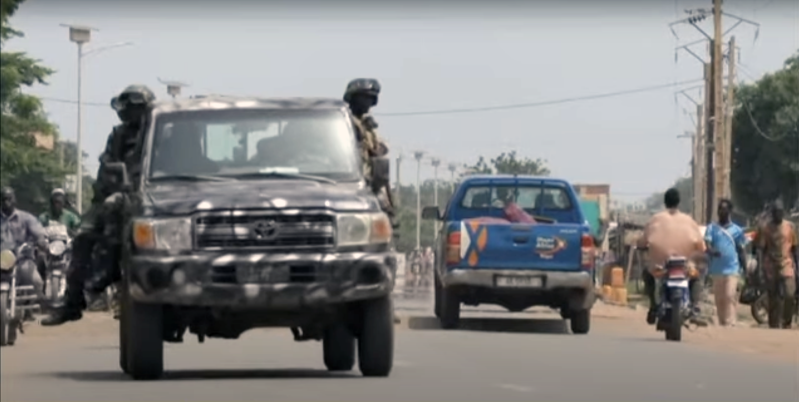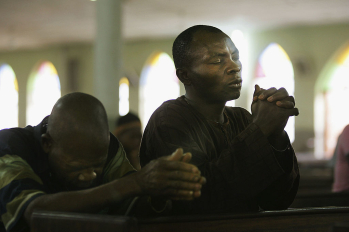
At least 39 civilians including children were killed by Jihadists in Niger while another nine died in central Mali after militants attacked and shot at residents in Segue village. Niger’s defense ministry termed the two separate incidents as ‘barbaric’ adding that the ‘horrific tragedies’ happened in Libiri where 21 people were killed and 18 in Kokorou near the border with Burkina Faso.
In a statement, Niger’s defense ministry said the attacks happened between Dec. 12 and Dec. 14, and came after sustained operations by the security forces who have restricted the militants in the volatile region between Mali, Niger and Burkina Faso, which has been the operations base for jihadists linked to the Islamic State group.
In Mali, insurgents killed a relative of a priest and six others in Segue village and two others in Sonfounou in what appeared to be coordinated attacks. A local civil society organization in Mopti region reported that a clinic, a pharmacy and an ambulance were set ablaze by the militants. Several motorbikes were stolen in the raid.
Terrorist groups over the past couple of years have targeted churches and mosques, killing religious leaders who refuse to renounce their faith. But recent developments reported by Open Doors revealed that the Islamic extremist groups in Mali have been demanding protection fees from Christians in the form of a punitive tax.
The tax, which is over half of the monthly income of local families, also permits non-Muslims to practice their faith, Open Doors Ewan Cameron told Rhema Radio in an interview.
“Local leaders are told that failure to pay (the tax) will lead to seizure and closure of churches,” said Cameron.
Although Mali did not directly link JNIM, which is affiliated to Al-Qaeda and ISIS, to the attacks, countries in the Sahel region, particularly Niger, Burkina Faso and Mali, have been battling islamist jihadists for nearly a decade.
Different militant groups have exploited existing grievances and vulnerabilities, such as poverty, lack of state presence, and inter-communal tensions, to recruit fighters and attack both civilian and military populations. Mali, Niger, Burkina Faso have been ruled by military juntas since 2020, stirred to take over power from civilian governments largely buoyed by a failure to contain violent jihadist incursions in the region.
As part of its strategy to create a caliphate in the volatile region, the militants took over Lere town in Mali days after the attack in Segoe village. The jihadists enforced a strict movement of people and goods in Lere, severely affecting vital trade routes that include Timbuktu city, also under total blockade.
At the same time, Mali’s foreign minister Abdoulaye Diop accused Ukraine of supporting terrorism activities in the region, escalating an already tense situation where the Russia-Ukraine conflict has spread in the Sahel region. Speaking at the United Nations Security Council meeting on Dec. 17, Diop urged the U.N. Security Council to take action against Ukraine for “manipulating terrorist groups and destabilizing sovereign states.”
Mali’s statement stemmed from comments made by Ukraine’s HUR military intelligence agency spokesman Andrey Yusov who in July 2024 said that the agency had provided intelligence to Tuareg insurgents. The militants in turn used the information to attack and kill Russia-backed Wagner Group private personnel and Malian forces in an ambush in northern Mali.
The Ukrainian government however later denied their involvement in the attack, but the damage had been done with Mali cutting diplomatic ties with Ukraine. Burkina Faso, Niger and Mali later sent a joint communique to the U.N. Security Council demanding action against Ukraine for supporting armed militants which “constitute the involvement of foreign state sponsors in the expansion of terrorism in the region.”
Diop urged the Security Council to “assume its responsibilities in the face of this deliberate choice by Ukraine, in order to prevent these subversive actions that threaten our stability.”
The three countries, overwhelmed by insurgents from Islamic extremists and other militant separatist groups, pulled out of the West African community block, ECOWAS, and formed the Alliance of Sahel States (AES) seeking help from Russia to push back the insurgents.
Although Christians in the Sahel are the minority, many have withstood intense adversity including death threats, displacement and imprisonment, and have kept the faith.
The Sahel region consists of 10 countries spanning from Eritrea and Sudan in East Africa to Senegal and Mauritania in the west. Others include Nigeria, Niger, Chad, The Gambia, Mali and Burkina Faso.
“Violent insurgent groups such as the Islamic State Sahel Province (IS Sahel) and Katiba Macina perpetrate serious violations against religious minorities, often in the context of weak state security,” notes the United States Commission on International Religious Freedom.





